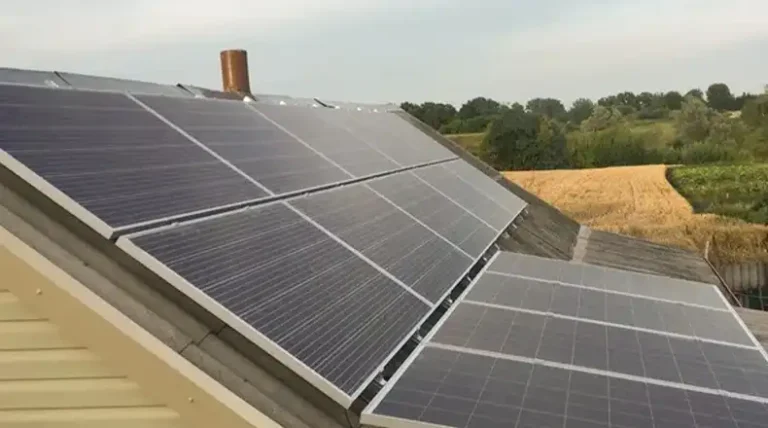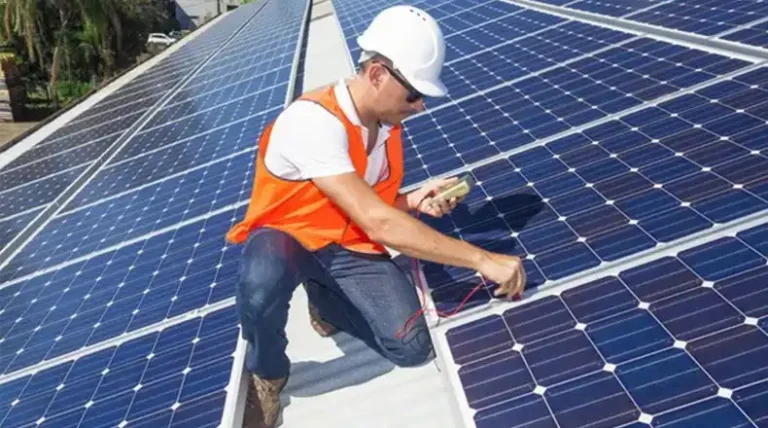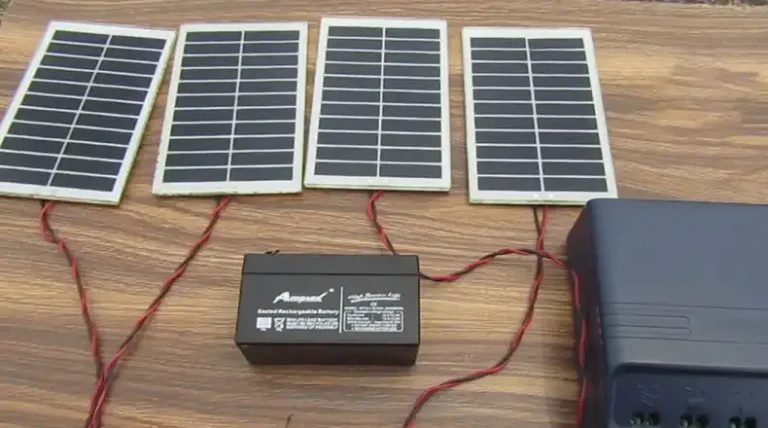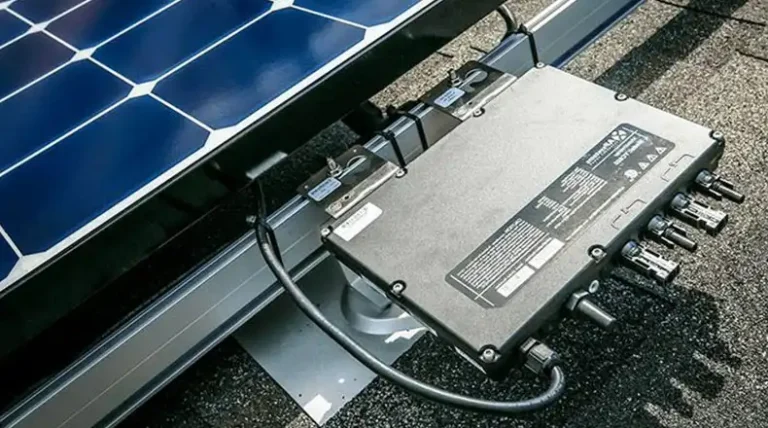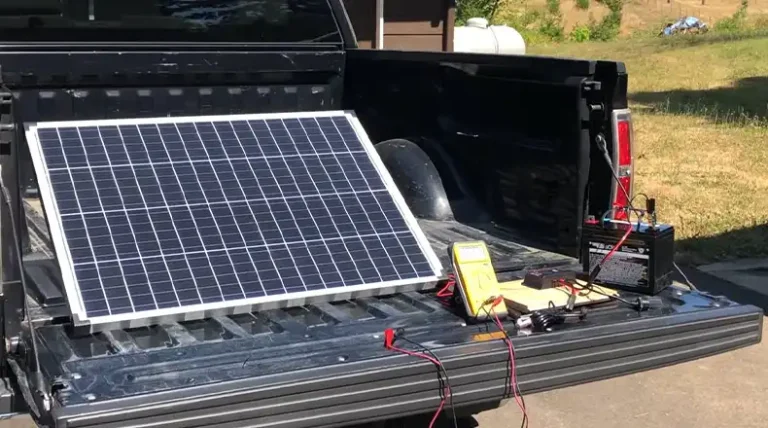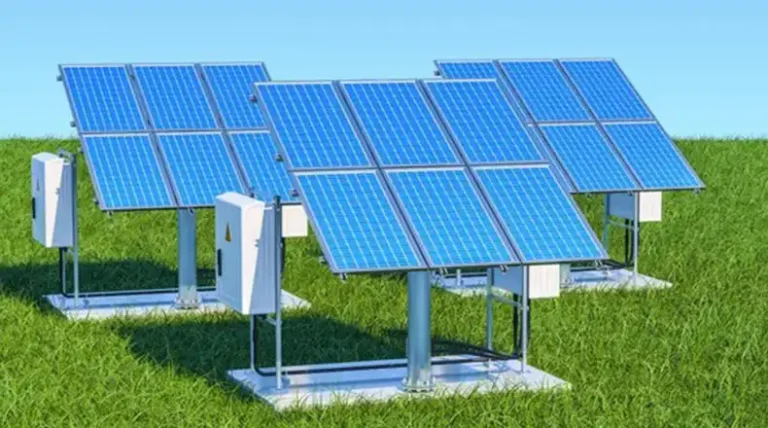Can You Use THNN Wire for Solar Panels? Is It Safe?
Solar energy is a renewable and sustainable source of energy that is becoming increasingly popular as a way to reduce our reliance on fossil fuels. Solar panel installation is complex and expensive. Use proper materials and equipment for safety and efficiency.
Good wiring is crucial for solar panels. It must handle high voltage, current, and weather conditions. THHN (Thermoplastic High Heat-resistant Nylon-coated) wire is commonly used. It has thermoplastic insulation, works in wet and dry locations, and resists heat, sunlight, and chemicals and it can be used for solar panels.
However, there are some important things to keep in mind when using THHN wire for solar panels. To learn in-depth, be with us till the end!
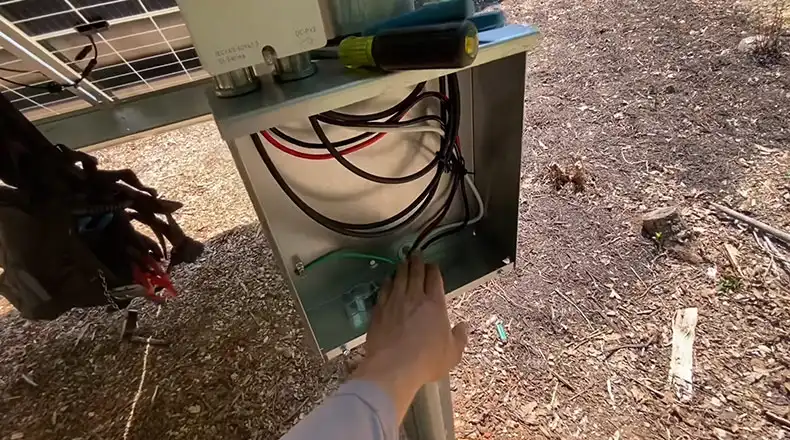
Is It Possible to Use THHN Wire for Solar Panels?
Now, let’s address the million-dollar question: can you use THHN wire for solar panels? THHN wire, which stands for Thermoplastic High Heat-resistant Nylon-coated wire, is a popular choice for general electrical wiring, but can it withstand the demands of a solar panel system?
Yes, you can use THHN wire for solar panels, but with a few important considerations.
However, if the solar panel requires USE-2 or other wire then using THHN wire is prohibited! Using it with the panels can bring consequences like the system can fail totally.
Another scenario is, if the Solar panel’s maximum voltage is higher than 600V then you can’t use THHN wire there as the maximum voltage of this wire is 600V.
THHN wire is rated for temperatures up to 90°C (194°F), which is lower than the ideal temperature rating for solar panel wiring. However, this doesn’t make it unsuitable.
Requirements of Solar Panel Wiring
Before we dive into the specifics of THHN wire, let’s first understand the fundamental requirements of solar panel wiring. Solar panels are an investment in the future, and their efficiency and longevity depend on the quality of the components used in the installation.
Conductor Material: Solar panel wiring should ideally consist of copper conductors. Copper is an excellent conductor of electricity and is highly resistant to corrosion. Aluminum conductors are another option, but they tend to be less efficient and durable.
Wire Gauge: The wire gauge, or thickness, is crucial in ensuring the safe transmission of electrical current. The wire should be thick enough to handle the voltage and current produced by your solar panels without excessive heat generation. Thicker wires have less resistance, which means less energy loss during transmission.
Insulation Type: The insulation on your solar panel wiring must be rated for outdoor use and be sunlight-resistant. It should protect the wire from environmental factors like UV rays and moisture.
Temperature Ratings: Solar panel systems can heat up, especially during sunny days. The wire you choose should have a temperature rating that can handle the operating conditions without degradation.
Compliance with Codes and Standards: Solar panel installation must adhere to local building and electrical codes. Ensure your wiring choices meet these requirements to avoid potential safety hazards and legal issues.
Advantages and Disadvantages of THHN Wire for Solar Panels
Advantages:
- Cost-Efficiency: THHN wire is widely available and cost-effective. If you’re on a budget, using THHN wire can be a viable option.
- Ease of Installation: THHN wire is flexible and easy to work with, making installation more straightforward.
- Widely Accepted: It’s a standard choice for residential electrical wiring, and many electricians are familiar with it.
Disadvantages:
- Temperature Limitation: As mentioned earlier, THHN wire’s temperature rating is lower than what’s ideal for solar panels. In extremely hot conditions, it may degrade over time.
- Durability: While it’s durable enough for general electrical use, it may not be as robust as specialized solar panel wiring designed to withstand long-term exposure to outdoor conditions.
What Needs to Keep in Mind While Using THHN Wire for Solar Panels?
If you decide to use THHN wire for your solar panels, there are crucial factors to keep in mind:
- Temperature Monitoring: Regularly monitor the temperature of the wiring to ensure it stays within the safe operating range.
- Proper Sizing: Ensure that the wire gauge you choose is adequate for your solar panel system’s voltage and current requirements.
- Protect from UV Exposure: Although THHN wire has an insulation layer, it’s not designed for prolonged UV exposure. Protect the wire by running it through a conduit or using a UV-resistant conduit.
- Consult a Professional: If you have any doubts or are unsure about the wiring, consult a professional electrician or solar panel installer.
Final Thoughts
In conclusion, using THHN wire for solar panels is possible, but it requires a thorough understanding of its advantages and limitations. With careful planning, monitoring, and adherence to safety standards, you can harness the power of the sun while keeping your solar panel system both efficient and safe.
We hope this article has shed light on the question of using THHN wire for solar panels. If you have more questions or need further guidance, please feel free to leave a comment below. We’re here to help you on your solar journey. Thank you for reading, and best wishes for your solar panel installation!
FAQ (Frequently Asked Questions)
Can I use aluminum wire for solar panel installations?
Yes, you can use aluminum wire for solar panels, but it has some drawbacks. Aluminum wiring is less conductive than copper, which can result in greater power loss. It’s also more susceptible to corrosion, so it’s crucial to use anti-corrosion compounds and make secure connections.
Is it necessary to ground solar panel wiring?
Yes, grounding is an essential safety measure in solar panel installations. It helps protect against electrical faults, such as lightning strikes or system malfunctions, by providing a safe path for electricity to dissipate into the ground.
Can I install solar panels myself, or do I need a professional installer?
While some individuals with electrical expertise may install solar panels themselves, it’s generally recommended to hire a professional solar panel installer. They have the experience and knowledge to ensure your system is safely and efficiently set up, maximizing your investment.
What’s the expected lifespan of solar panel wiring?
Solar panel wiring typically has a lifespan of 25-30 years or more. However, this can vary depending on factors like the quality of the wire, environmental conditions, and proper maintenance.
Do I need a battery for my solar panel system?
No, a battery is not necessary for a solar panel system. It can be added for energy storage if you want to use solar power during non-sunny hours or as a backup during power outages, but it’s not a requirement for a functional solar setup.

